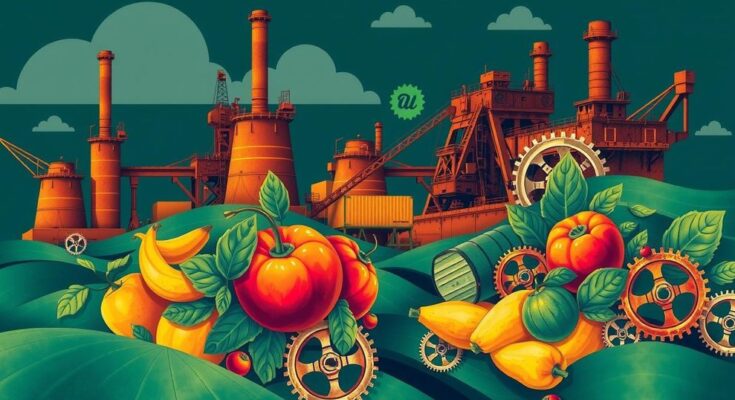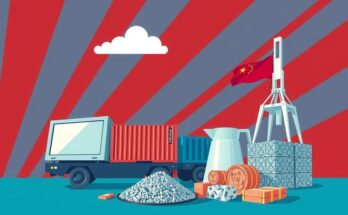In the realm of global trade, history has taught us that trade wars often spiral unpredictably, much like military conflicts. Historically significant figures like Utah Senator Reed Smoot acted on the assumption that tariffs would protect American jobs, yet shortly after implementing them, they witnessed the onset of the Great Depression. Fast forward to today, and we find similar misguided reasoning in modern tariff policies, particularly under the Trump administration.
A stark reality emerges when we examine the challenges of domestic production; some commodities simply cannot be feasibly cultivated in America. For instance, while the notion of farmers having fun with tariffs may sound appealing, the hard truth is that they rely on imports like Peruvian asparagus and blueberries, which are not only convenient but also cost-effective. Without these imports, fresh produce prices would soar, placing a burden on consumers.
Moreover, the infrastructure to return to substantial production of various goods is largely non-existent. Once-thriving American steel mills and factories have either vanished or become obsolete, leaving behind a landscape that would require extensive reinvestment and time to resurrect. Simply put, the expectation for an immediate economic resurgence due to tariffs reflects a misjudgment of reality.
In examining fixed versus variable costs, it becomes evident that older manufacturing facilities cannot simply restart operations due to outdated machinery and inefficiencies. As such, even if some plants remain operational, the costs involved in reviving production would deter such efforts, given the modern economic landscape and the complexity of creating new facilities.
The notion of supply elasticity reveals that the anticipated increase in U.S. production, prompted by tariffs, will not materialise as quickly as implied. Initial growth in supply will be minimal, with businesses grappling with the challenges of hiring, training, and establishing supply chains before they can ramp up production. This scenario leads to a prolonged period of elevated prices for consumers, contrary to the relief tariffs purported to offer.
Trump’s vision for tariffs to foster domestic production fails to recognise the inherent contradictions of his policy. While he posits that higher tariffs will boost American manufacturing, the reality shows that such tariffs ultimately burden consumers, mirroring a regressive tax. Additionally, misconceptions surrounding trade deficits muddy the waters, often incorrectly interpreted as indicators of unfair practices, rather than differences in taxation.
Reflecting on all of these factors, it is crucial to scrutinise the underlying principles of tariff policy. History demonstrates the risks tied to abrupt economic decisions, and current assumptions surrounding tariffs may similarly lead the economy down an unanticipated and detrimental path. The focus should remain on fostering sustainable growth rather than falling victim to flawed ideologies.
The article critiques Trump’s tariff policies, likening them to historical trade wars that led to unforeseen consequences. It highlights the impracticality of domestic production for certain goods, the obsolescence of many U.S. factories, and the misalignment of tariffs with economic realities, ultimately suggesting that such policies may burden consumers rather than rejuvenate the economy.
The exploration of tariff impacts reveals deep-rooted flaws in the rationale behind current U.S. trade policies. History has shown trade wars rarely yield the desired outcomes, and today’s market is riddled with challenges that these tariffs do not address. As consumers face heightened prices and business cycles are disrupted, the misconceptions about tariffs may lead the economy astray. It is vital to scrutinise these policies further to foster informed economic growth, rather than retreat into outdated models that have failed in the past.
Original Source: www.twincities.com



